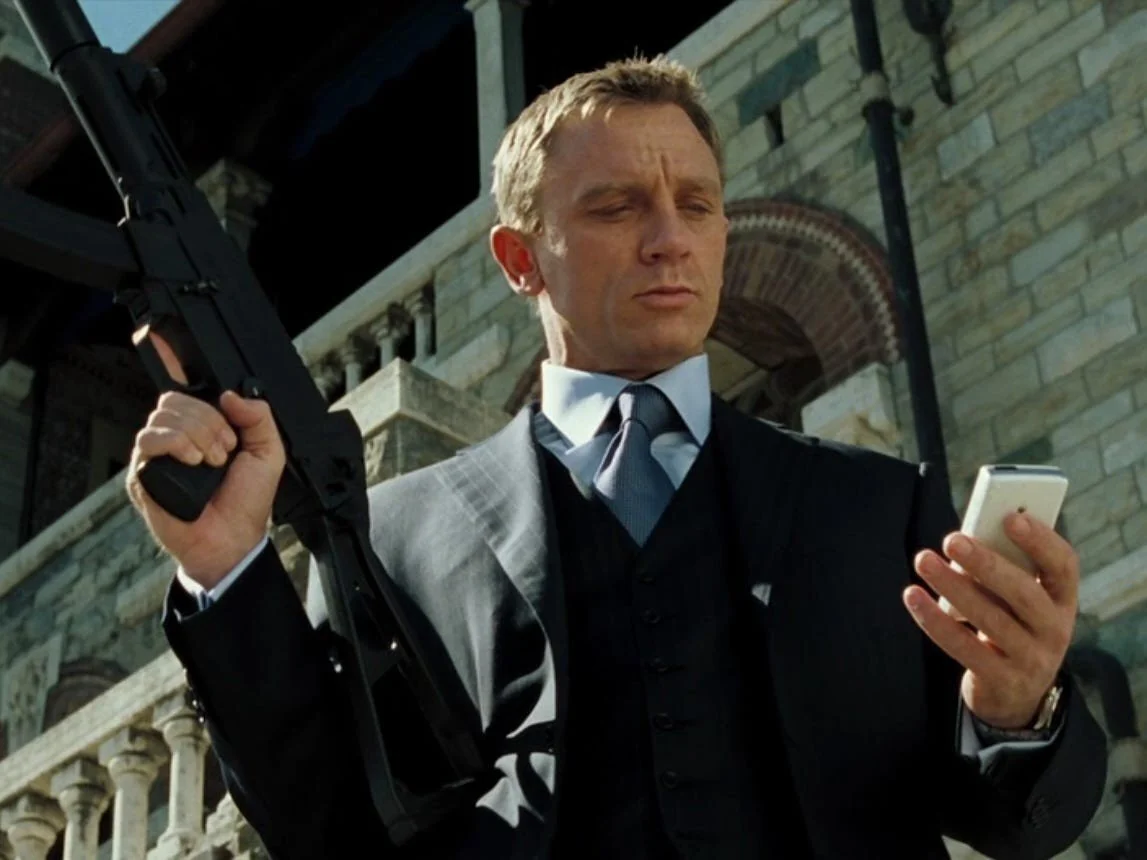Casino Royale (dir. Martin Campbell, 2006) - Review
Download the Casino Royale screenplay for personal, private use.
Daniel Craig was a Bond for an age of crisis long before the burden of rescuing the film industry landed on his shoulders. Over his fifteen year tenure, Craig, as the face of the franchise, has been tasked with shepherding the West into the new millennium- and into an identity that seems increasingly remote from the stock character of the twentieth century.
Bond is perhaps the only unbroken cultural link with the 'good old days': the world invoked by boomers, politicians, and online fantasists alike, where men were men, terrorists were terrorists, and snowflakes were something you encountered while celebrating a good Christian holiday. Reworking or openly flouting the conventions of the series, Daniel Craig's Bond debut set the tone for a 21st century serial, grounded in a different interplay between fantasy and realism. Part Bond and part Bond Girl, part thinker and part action man, the hybrid Bond of Casino Royale quietly renounced his historic claim to the all-conquering hero role (now filled by Marvel's international, interplanetary pantheon of do-gooders).
Famously, the new Bond charged into controversy bordering on iconoclasm, perhaps to sever itself from decades of kitsch. Audiences needed look no further than Austin Powers to see that the joke of the self-abasing Bondian ubermensch had run its course. Heading into the 2000s, producers tackled the issue head on with their choice of source material: 1953's Casino Royale was not only the first Bond novel, but the source of 1967's blatantly satirical film version starring Peter Sellers and Woody Allen. Craig, meanwhile, was lambasted as the 'blonde Bond'- distilling the obsession with a figure defined by his body and his women.
Hence, of course, the swim trunks: a very small sartorial answer to all those big questions of identity. The now iconic shot of Bond breaking from the Bahamanian waters- becoming the pound of (naked, dripping) flesh usually provided by his women- stoked even more derision in pre-film publicity. But the success of Craig's Bond has come exactly from proving himself, as both character and franchise, in the face of a serious challenge.
This iconoclastic spirit is key in Bond's reinvention, reducing his pulpy, archaic Boys' Own Adventure aspect and scaling up a key element of the fantasy: danger. Over a solid two and a half hour runtime, director Martin Campbell draws on a broad, shifting palette of threat, mixing adrenaline-pumping violence and emotional anxiety, typified by a grainy black and white prologue. Setting Casino Royale at the start of Bond's career- before his ascendancy into 007 myth- shifts it further back to the realm of the spy story, where characterization is just as much of a mystery as the adventure.
Destroying certainties of character draws fresh mystery from familiar elements. Assigned to bankrupt terrorist villain Le Chiffre (Mads Mikkelsen) at a poker game, Bond bed-hops between beautiful women entangled with money and power, particularly Vesper Lynd (Eva Green), and of course, ultimately prevails in his mission. But Bond's triumph- onscreen, in the critical response, and at the box office- doesn't come from ploughing brutishly through these fantastical obstacles; it's in breaking with his image as a self-deluding relic of a bygone era.
Mikkelsen's brilliant Le Chiffre forces Bond to confront not a pantomime baddie, but the terror of emasculation: the infamous ball-torturing scene, and the equally violent homoerotic tension, all pile onto the central psychological conflict at the poker table (replacing the gadget-laden submarine). Casino Royale reset Bond’s footing on the unsteady line between delusion and confidence, essential not just to spy mystery but to the franchise and its role in society. And if No Time To Die’s opening week has been anything to go by, it succeeded.






